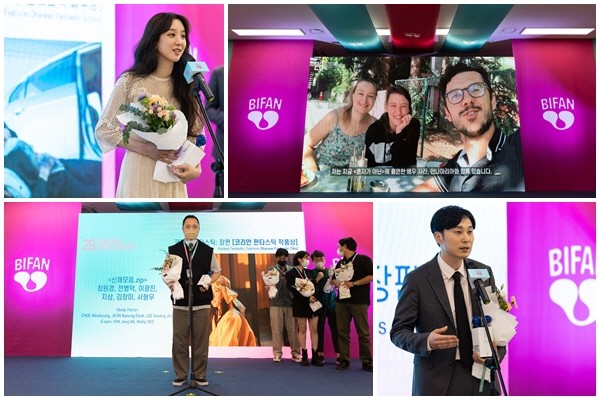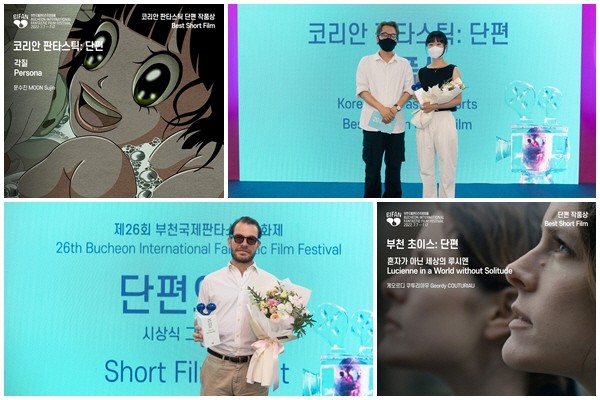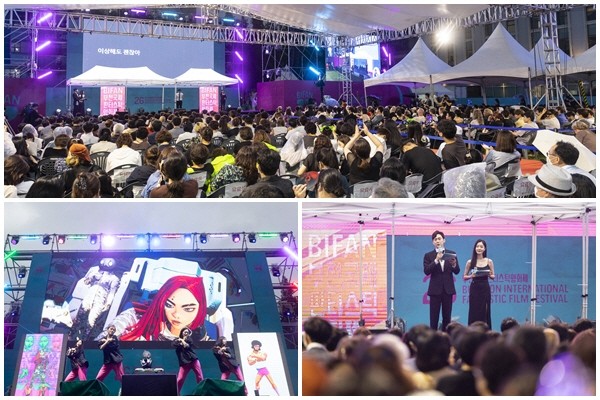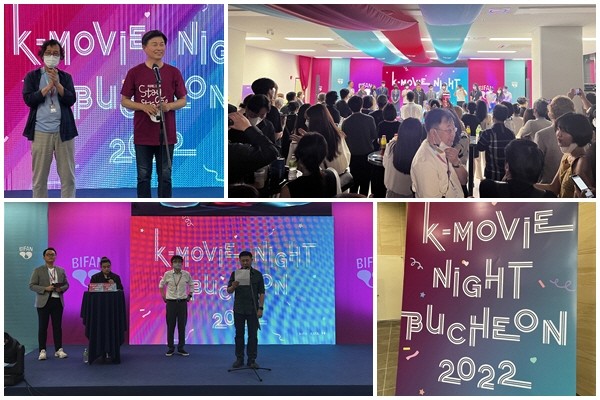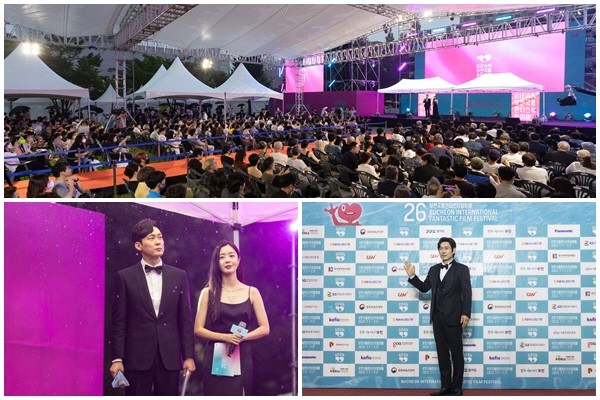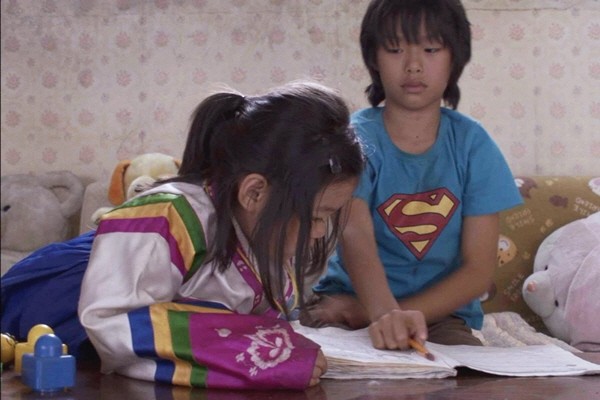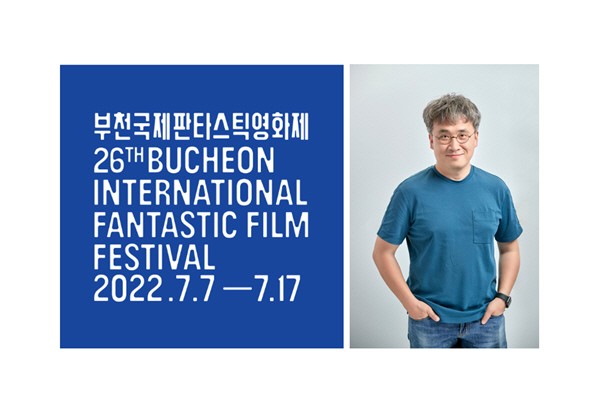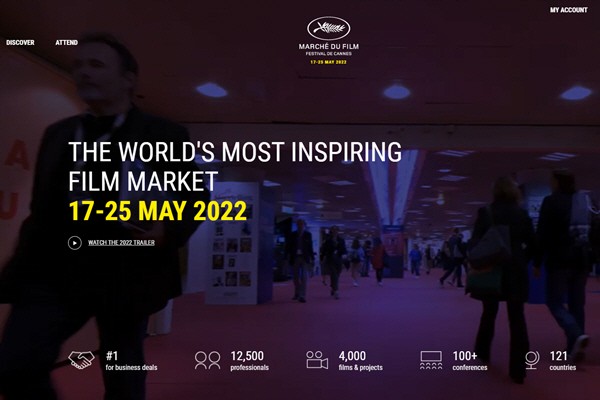130, Suyeonggangbyeon-daero,
Haeundae-gu, Busan, Republic of Korea,
48058
CHOI Yong-bae, Chairman of Bucheon International Fantastic Film Festival
Jul 03, 2018
- Writerby KIM Su-bin
- View2152
“We plan on providing a highly-sensitive experience to the audience through new technologies”

This year, Bucheon International Fantastic Film Festival (BIFAN) plans on satisfying both the film industry and the fans. Professionals will be able to get useful information at the BIFAN Industry Gathering (B.I.G), which will include several practical forums, while the audience will be entertained at late night screenings and escape room games. However, the essence of the festival still lies in the screenings. With sections including a special showcase of horror film masters and a selection focused on the representation of women in sci-fi films, this year’s program is looking strong. We met with Chairman CHOI Yong-bae, who has been leading the festival since the 20th edition in 2016, to get a sneak peak of the 22nd BIFAN. Apart from the festival, CHOI Yong-bae is also a leading producer in Korea known for features like The Host (2006) or 26 Years (2012).
-What kind of changes were made to the festival since you became Chairperson?
My main focus in the last three years was to make BIFAN a trustworthy festival. When I became its chairperson, there were talks from some filmmakers about boycotting the festival since, in 2004, the previous chairman was unfairly dismissed along with a fellow programmer. From then, film professionals have asked the city of Bucheon for the situation to go back to normal, but it has not gone through and industry people stopped coming. We have prepared a festival that is worth coming back to, and I thought we should show that we worked on resolving the cause of the boycott.
The current organizing committee, the chairman, and the city have acknowledged the problems that were encountered in the past with the previous administration and expressed their regrets. We decided that we should help revive any damaged honor the people involved might have suffered. During the opening ceremony of the 20th festival, for example, we took the time to offer a plaque of appreciation to the festival's previous chairman KIM Hong-joon, and we sent out an official invitation to The Association of Korean Independent Film & Video who previously boycotted the festival.
-Compared to last year, how is this year’s festival different?
A festival’s status is determined by its programming. In that respect, in order to increase the quality of the festival, we needed a pool of talented programmers; whom I was able to find. A film festival is a festival for the people, but it must also be valuable to film professionals. I thought we should play a key role in giving strength to the industry, so a few years back, we added to our preexisting NAFF program a new section called BIFAN Industry Gathering (B.I.G). Maintaining this program well became the core of the 22nd festival. This year, I believe we have special showcases that show great harmony. Starting last year, we also started holding a special showcase of a film industry professional who is currently active. Last year it was JEON Do-yeon and this year it will be JUNG Woo-sung. We also paid a lot of attention to our opening film. One of the festival’s goals is to introduce a highly anticipated domestic film to our international guests, so we wanted to select an opening film that will receive extra attention. That’s why we chose Underdog to be screened as a world premiere. Not only does it have a high cinematic value, but it also matches the identity of our festival well. We’re having a special program for horror masters who passed away in the last two years as well, featuring Wes CRAVEN, George A. ROMERO, and Tobe HOOPER. It’ll be a treat for our festival’s regulars. This program also helped us find a visual concept for this year’s edition. In fact, during our 20th festival, we came up with a new identity called “Cell of Fantasy” and this year, it will be attributed to the festival so I think it gives a visual change.

-2018 is B.I.G.'s third year. How do you evaluate it?
I believe we’ll be able to see the fruits of the program if we continue it on the long-term. ‘Made in Asia’, one of the sections within B.I.G, has a special programming called “Best of Asia” where successful titles from 10 Asian countries are introduced to international professionals. Since we’re an international film festival, I believe it’s important to see what kind of films our neighbors were moved and entertained by. From a business point-of-view, we can also get a hint of what kind of genres might do well abroad, while getting inspiration. However, due to the small number of attendees, we had to reduce the size. We’ll screen films when the producers are able to attend, and we will sometimes introduce these films as a commercial event instead of a screening. The reason why we do this is to keep the spirit of this program for another 10 or even 20 years. Each year, we publish a book that discusses the trends in 12 to 13 Asian countries. One day, this program and the documents we’ve collected will become a guide to understanding Asian films. I’m certain we’re collecting very useful information for the industry. As for the new media category, we’ve been strengthening our VR programming. Even before VR theme parks were established, we installed a VR dome during our 20th edition. We’ll be setting up a VR Village at the Bucheon Central Park this year. I often hear from others that developing new technologies and allowing the public to experience it firsthand is a great fit for our festival. I want people to recognize that they can get updates on VR contents as well as on the various trends of the industry at BIFAN, so I hope to continuously have VR content in our industry program.
-This year is your last year of service. How do you feel when you look back at the last 3 years?
As a film producer, I’ve been to many festivals and participated in a lot of them. However, I was going as a producer, not as a film festival staff. I started my term wondering if I’d be able to do well and I should leave that for others to assess. However, while working at the festival, I was able to learn a lot about different elements I should think about when making films. As the chairperson, I met a lot of new people and I was able to understand films in a new way. That’s one of the privileges I’ve earned through working for the festival, and in that respect, I’m thankful for the time I spent here. I’ll do my best for the remaining time of my mandate to help the festival become one that citizens and film professionals remember.
-Did you set any rules to follow when you became chairperson?
I was first recommended for the position in November of 2015. It was at the same time as the downfall of Busan International Film Festival and I realized how important a film festival is. I also thought that it was up to the film professionals to protect a festival, and I felt some kind of responsibility towards it. A film festival is a cultural celebration in a specific area. It exists for both citizens and film professionals, and it’s an asset us filmmakers should protect. One should never try to privatize it, nor think of it as a money business. We must feel responsible for its management, for the audience and for the citizens. I believed someone with such a mindset should be working in film festivals as I first took over the role of Chairman.















